Search for topics or resources
Enter your search below and hit enter or click the search icon.
Providing your email address will keep you updated should we need to provide updates specific to your location.
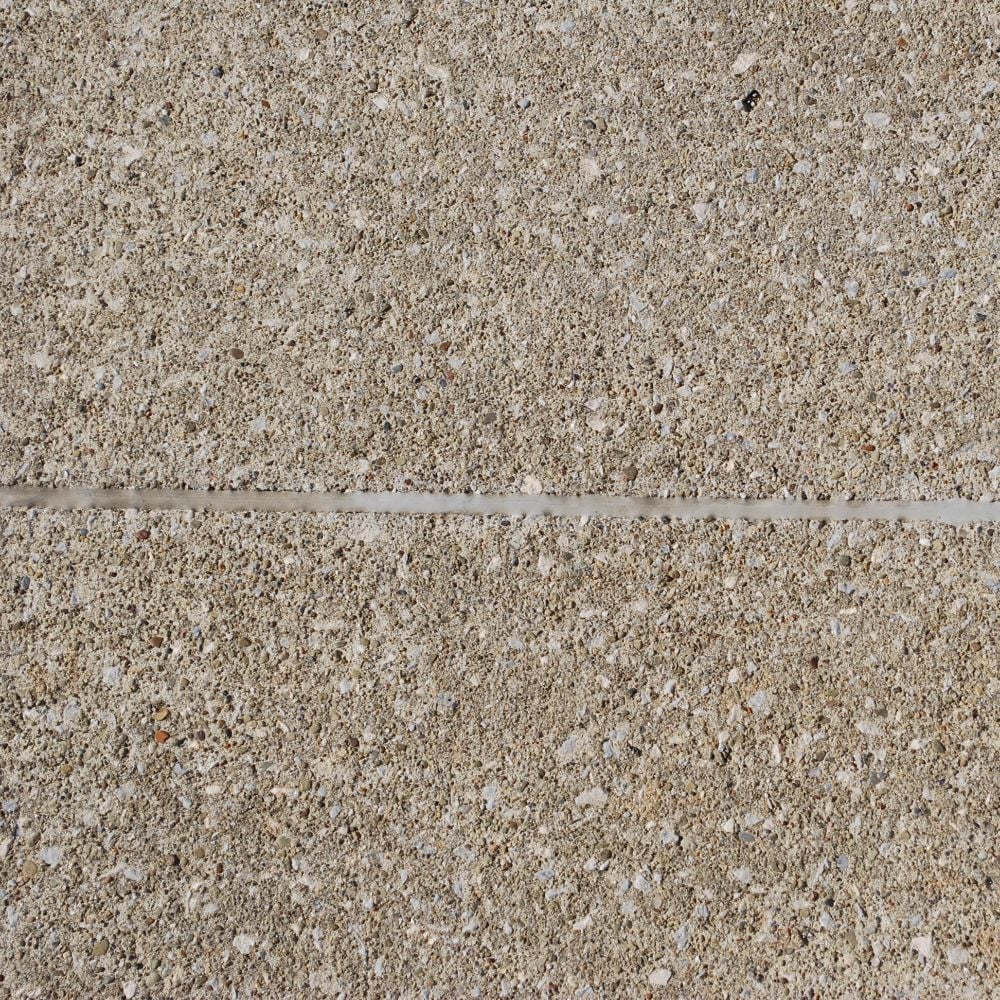
Repairing concrete cracks isn't just about aesthetics – it's critical for maintaining the structural integrity and longevity of your concrete.
Whether it's a driveway, sidewalk, or patio, understanding how and why you should seal cracks and joints can significantly extend the life of your concrete.
This guide will walk you through five reasons that caulking and repairing concrete cracks is so important. If you’re looking for a how-to on repairing concrete cracks, check out our DIY Crack Repair Guide.
Here at A-1 Concrete Leveling, we’ve been repairing and maintaining concrete nationwide for over 30 years – click here to learn more about concrete caulking as a service.
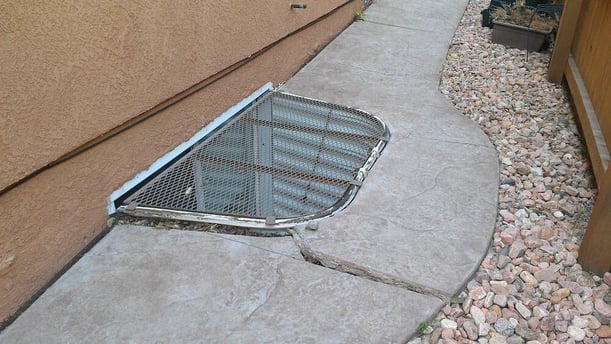
Water will do its best to find a way under your concrete and wash out the subsurface. Having cracks or gaps in the concrete slab make this easier with a direct path for water to get below the surface and erode away the material holding it up, eventually leading to settling and further cracking.
By caulking cracks and joints, you create a barrier that prevents water from undermining the concrete, thus maintaining its stability and evenness.
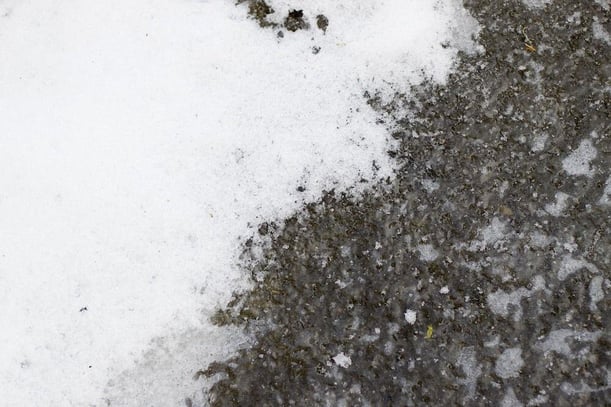
Concrete is a porous material, absorbing water that can cause significant damage during freeze-thaw cycles. When water trapped inside concrete freezes, it expands, causing the material to crack and deteriorate.
Sealing these cracks with high-quality concrete caulk helps prevent water from penetrating into the crack and causing it to worsen as it continuously expands and contracts with fluctuating temperatures.

Cracks in concrete provide the perfect environment for weeds and plants to grow. These unwanted guests can widen cracks as their roots expand, further breaking down the concrete.
Applying a flexible, durable caulk fills these gaps, preventing plant growth – which is great for both you and your concrete as you’ll have fewer weeds to kill and pull.
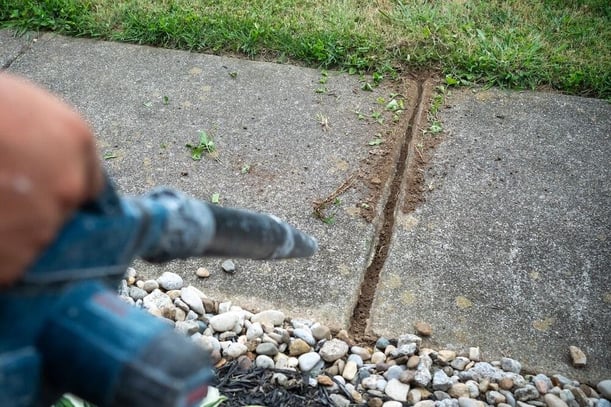
Cracked concrete can pose serious trip hazards, especially in areas with high foot traffic. Larger cracks can be dangerous for anyone, but smaller cracks can catch high-heel shoes.
By filling cracks, you minimize the risk of accidents and injuries, making your property safer for everyone.
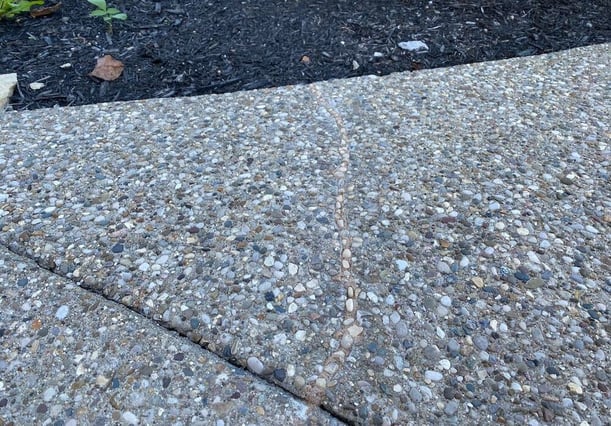
By repairing concrete cracks, you’ll have a more uniform look to your concrete. Colored caulks, sand, or aggregate stone can be used to blend the caulking into the existing concrete, making it look even more consistent.
A well-maintained concrete surface enhances the overall look and feel of your property.
Yes, exterior concrete cracks will get worse over time if left alone. This is because water gets into the cracks and is absorbed into the concrete’s pores. When temperatures drop below freezing, the water expands, the pores pop, and the crack grows.
Sealing up the cracks with concrete caulk prevents water from getting into the crack and worsening the crack over time, but if you don’t take this preventive measure, the cracks will likely worsen.
You can stop concrete cracks from spreading by sealing them with concrete caulk. This will prevent moisture from penetrating into the crack and causing it to expand with freeze-thaw cycles.
Related Resource: How To Fix Concrete Cracks
Concrete maintenance is an ongoing commitment that requires attention and care, and you now know why it’s so important to take proactive steps in preserving your concrete by repairing cracks.
If you're an avid DIYer and would like to try repairing concrete cracks yourself, check out our detailed guides on how to caulk cracks in your driveway or sidewalk.
But if you’d like to know more about professional concrete crack repair services, find your location to request a free onsite cost estimate from a member of the A-1 Concrete Leveling team near you.
Sarah Etler joined A-1 Concrete Leveling after receiving her Bachelor of Arts degree in English from Northern Kentucky University. As A-1's Content Marketing Manager, she works closely with industry experts to produce content that will best answer questions related to concrete repair and maintenance practices. Sarah loves living a life full of discovery and is excited every day to see what new things she can learn and share with those around her.